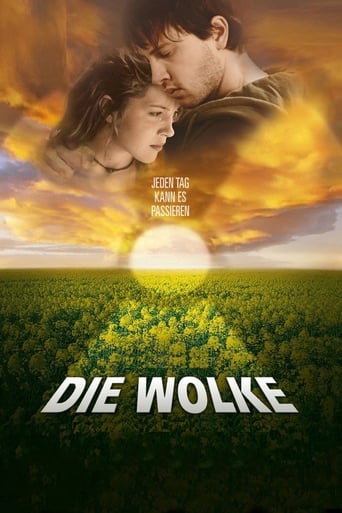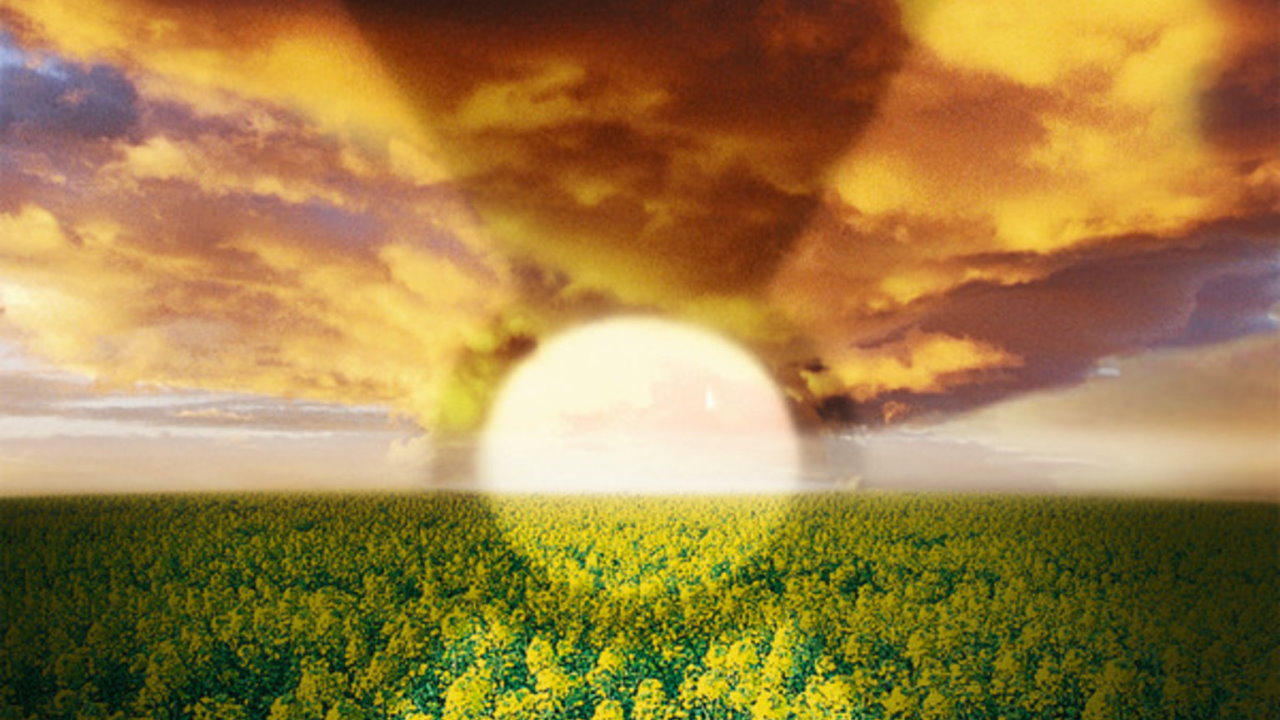Alexandra Wilke
I watched the movie the other day and I have to say, I'm surprised. The acting was believable and the girl did a fantstic job in my opinion.Also the invisible, omnipresent danger was so chilling, the reactions of all people who ran from the peril - the panic and turmoil at the station was just palpable.I have to say though - replying to a previous post by a user - the dark cloud shown was just a rain cloud and nothing more. That woman who exclaimed "she's coming!" when she saw that dark cloud approach, acted simply of stupidity and sheer panic of the nuclear cloud reportedly approaching the town. the woman was mistaken and thus caused an even greater commotion. That might be a typical reaction if you know nothing about the peril you're in...Anyway - the film was good and at least a bit of insight what might happen... hopefully never.
tributarystu
It's strange how trends tend to migrate regardless of their nature - good or bad. And it's definitely not only the case in modern cinema, but also in day to day life. One might actually notice that some trends are more 'adaptable' than others and it just so happens that it's the lesser trends which have this characteristic.Yet, talking about trends is like talking about the act of imitation, because that's all there is to do in order to 'adopt' a certain shift in secular thinking. Unfortunately, though, while the act itself - the act of imitating, that is - was once considered the premise for facilitating swifter advancements in a nation's cultural endeavours, the underlying concept seems to have been...misplaced. That is, the concept of adapting, which implies creating shapes that can serve as a basis for foreign 'imports'.I am so sorry for digressing in such a disgusting manner, but I believe it serves an obvious purpose. It's truly a shame that a culture as vast as the German one is ignored in producing a movie which is so "hollywoodian" it simply implodes. Too much of anything just can't survive."Die Wolke" is based on what I heard to be a heart-breaking story about love facing boundaries. A bit atypical, in the sense that the problem isn't of a common nature, such as family or society, but of a more horrendous one: a nuclear meltdown. Given that the starting point is one of such graveness, it would have been important not to overemphasize *some* aspects of the film. Regretfully, this is exactly what happens and the movie slowly turns into a love story that sometimes simply goes beyond the pathetic (in the Oxfordian sense of "causing one to feel pity or sadness").As the "Wolke" catches up with the main protagonist, a girl named Hannah, she is severely affected by the radiation. Elmar, her boyfriend, defies his father's (who just happens to be as rich as they come) and in a gesture of absolute altruism and complete devotion starts to search for his Hannah. I guess a more pragmatical viewer can imagine what outcome the relationship between a healthy person and a one recently 'radiated' might have.I hate being overly sarcastic, but sometimes this is all we humble mortals are left with, in the face of a work that tries to be of such an astounding magnitude and, actually, is nowhere near it. There are, however, some things I enjoyed about "Die Wolke". Actually, it's only one thing, but of quite an importance: somehow the film managed to convey the disaster at a fine pace, in all it's urgency and in a rather threatening manner. And this is truly an impressive achievement, as the film does not rely on extensive SFX.To digress once more, for a bit: this German movie tries to be as American as possible. The thing is, if you're trying to do a disaster movie without massive special effects, then you might as well try to avoid using ALL the clichés you've ever stumbled over. Not being pretentious when playing with art is of the utmost importance.
nickcomfort
The long-awaited film adaptation of Gudrun Pausewang's 1988 bestseller, lives up to readers and critics expectations alike. As in the novel, the teenaged protagonists take centre-stage in the cautionary antinuclear tale. The focus remains so fixedly on our young heroine and her troubled beau, that, were it not for the occasional shot of the brooding dark cloud moving at breakneck pace across the idyllic German countryside, we would likely forget the nuclear catastrophe, and relegate it to the position of initiator of events, rather than overriding drama.The film's sentimentality is given carte blanche, as teenage angst is substituted and validated with abstract and scientifically incorrect fears and assertions about the safety of atomic energy. Being put on par with national if not global energy policy, the horror-drama of the characters situations forces our sympathy, and by the end of the film, we find our selves wanting to scream out: "It would have all worked out, were it not for those dratted power plants!" Not to deny that nuclear catastrophes have an individual human cost, but they also have a mass human cost, a catastrophe can only be shown to be such, when the universalising magnitude of its scale is shown. "Die Wolke", gives us a gaggle of teenagers with whom we identify no more than any other group of acne-poppers whose fragile lives are thrown out of balance on Sunday afternoon television.Viewers cold, utilitarian, opinions are countered with a brand of Dickensian humanism with an agenda. The film is prefaced in many cinemas with a reductionist piece of sensationalism, namely advertising by Greenpeace. Greenpeace are an action group, yes, but Greenpeace energy is a privately owned energy provider. This introduction leaves a bitter taste in the viewers mouth that does not abate, but tends to get surge up again, whenever the films characters utter one of their newly wise energy policy statements "Nuclear energy, we should have got rid of it years ago!" "And switched to Greenpeace," was all that was ringing in this critics ears.In Regensburg' s Ostentor Cinema, a Q and A session (heavily focusing on the A) was held after the film. Invited were a political figure, a doctor specialising in catastrophe medicine, the organiser of the Evangelisches Bildungswerk and a judge turned politico. While they all agreed the film lacked scientific consultation, they all proceeded to use it as a platform to float their differing opinions. The panicked audience rattled off questions as to what they were to do in case of nuclear catastrophe, "The opposite of what they do in the film!" was the popular response. While increased cancer rates were shown in the following years, only two people died from the direct explosion and radiation in Tschernobyl. The majority of the deaths among those 30- 40,000 expected to die following a nuclear catastrophe result from unrest in the fleeing population.If panic is the overriding sentiment following a change in nuclear policy, such as might be produced by a major meltdown in the reactor of power plant, then it is no great leap to assume that panic is also the overriding sentiment in the depiction of nuclear energy in film.
eicberin
I saw this film this week and since there is no comment yet I'll have the honor ;) I don't want to go into detail and tell or analyse the story right now but I want to say that it's really outrageous. I haven't read the book to it yet I must confess but my friend did and she said that the movie is somewhat different, which is quite logical. I think that they really made the best out of the story, the book was basically about a catastrophe and the life before and after an atomic accident. I give away that there is a love-story that wasn't obvious in the book but it is not like in other book-picturisations a public-lure, it is just a wonderfully insight-giving thread. I liked it that the film does not rush through things, it's not that you feel after fife minutes like "okay that was the life before it now" and then "ooh yeah the accident, now there's gonna be action". Far from it. It starts like a great movie about common characters, life, family, love, youth .. and the film manages to keep your attention but it does not lead you into a romantic ideal-world-feeling that crashes when the alarm rings, it just is realistic, to sum it up. And all in all it really keeps your attention, your interest and your emotions, it gives room for emotions and thoughts about the meaning of love, of life, existence and death at the same time and there's not a sweet beginning, a total clue of action, sadness and shock with an abrupt ending, it has this sweet expectation that again and again there's something worse to come up that leaves you sitting small but gracefully and caring but not unnecessarily crying in the cinema-chair. The actors did a great job, all of them, above all the quite young main characters. To put it in a nutshell: go and experience that experience, but do it aware and on a day your nerves are strong, with someone you can look at in moving moments where words wouldn't do but loneliness would turn the effect in another direction, don't "just go to the movies" because this is not "just a film". every blessing /eicberin/


 AD
AD

